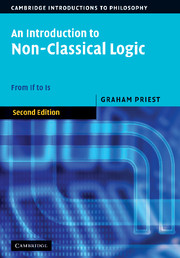Mathematical Prolegomenon
Published online by Cambridge University Press: 05 June 2012
Summary
In expositions of modern logic, the use of some mathematics is unavoidable. The amount of mathematics used in this text is rather minimal, but it may yet throw a reader who is unfamiliar with it. In this section I will explain briefly three bits of mathematics that will help a reader through the text. The first is some simple set-theoretic notation and its meaning. The second is the notion of proof by induction. The third concerns the notion of equivalence relations and equivalence classes. It is not necessary to master the following before starting the book; the material can be consulted if and when required.
Set-theoretic Notation
0.1.1 The text makes use of standard set-theoretic notation from time to time (though never in a very essential way). Here is a brief explanation of it.
0.1.2 A set, X, is a collection of objects. If the set comprises the objects a1, …, an, this may be written as {a1, …, an}. If it is the set of objects satisfying some condition, A(x), then it may be written as {x :A(x)}. a ∈ X means that a is a member of the set X, that is, a is one of the objects in X. a ∉ X means that a is not a member of X.
- Type
- Chapter
- Information
- An Introduction to Non-Classical LogicFrom If to Is, pp. xxvii - xxxiiPublisher: Cambridge University PressPrint publication year: 2008



